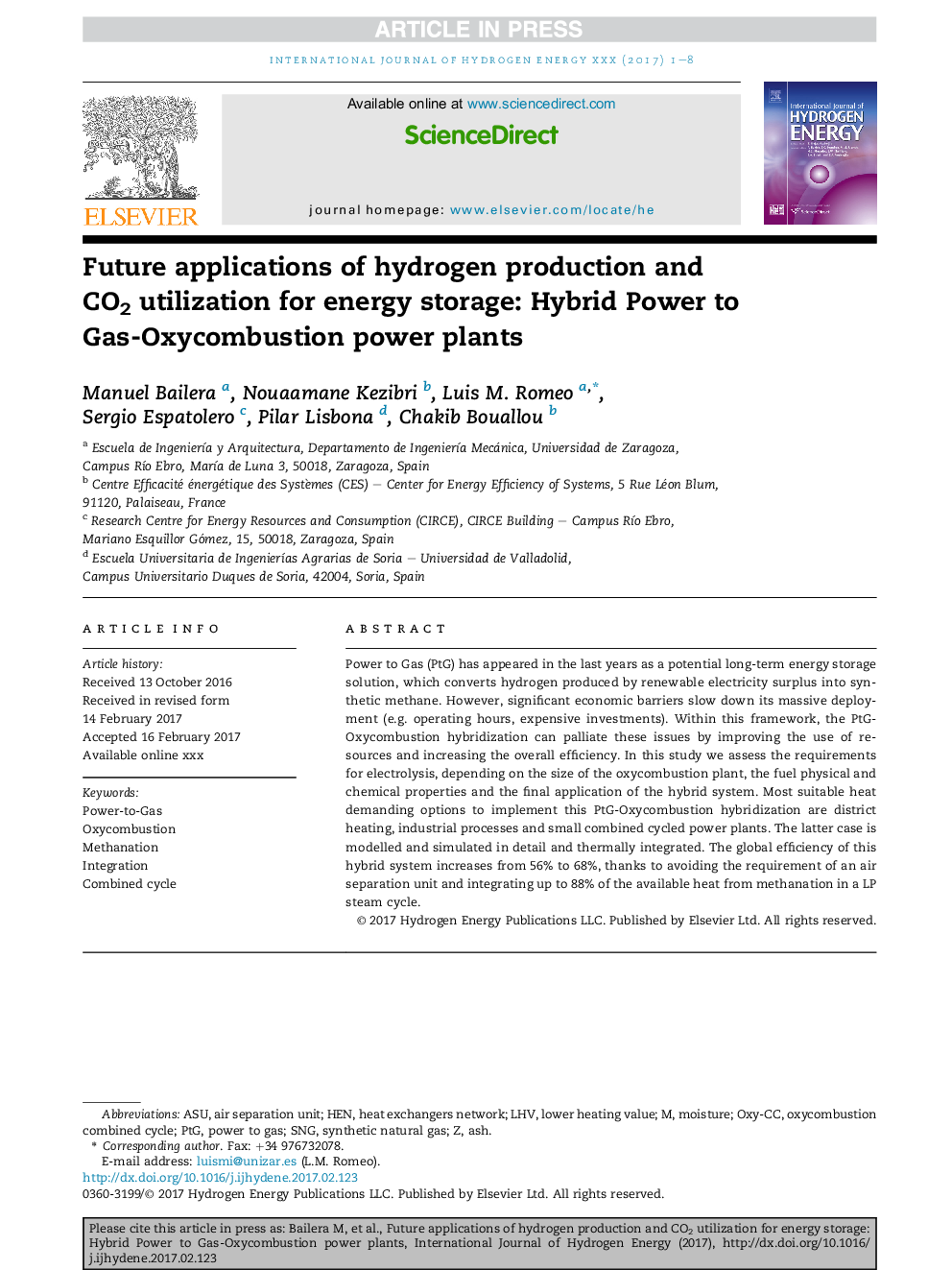| Article ID | Journal | Published Year | Pages | File Type |
|---|---|---|---|---|
| 5147311 | International Journal of Hydrogen Energy | 2017 | 8 Pages |
Abstract
Power to Gas (PtG) has appeared in the last years as a potential long-term energy storage solution, which converts hydrogen produced by renewable electricity surplus into synthetic methane. However, significant economic barriers slow down its massive deployment (e.g. operating hours, expensive investments). Within this framework, the PtG-Oxycombustion hybridization can palliate these issues by improving the use of resources and increasing the overall efficiency. In this study we assess the requirements for electrolysis, depending on the size of the oxycombustion plant, the fuel physical and chemical properties and the final application of the hybrid system. Most suitable heat demanding options to implement this PtG-Oxycombustion hybridization are district heating, industrial processes and small combined cycled power plants. The latter case is modelled and simulated in detail and thermally integrated. The global efficiency of this hybrid system increases from 56% to 68%, thanks to avoiding the requirement of an air separation unit and integrating up to 88% of the available heat from methanation in a LP steam cycle.
Keywords
Related Topics
Physical Sciences and Engineering
Chemistry
Electrochemistry
Authors
Manuel Bailera, Nouaamane Kezibri, Luis M. Romeo, Sergio Espatolero, Pilar Lisbona, Chakib Bouallou,
